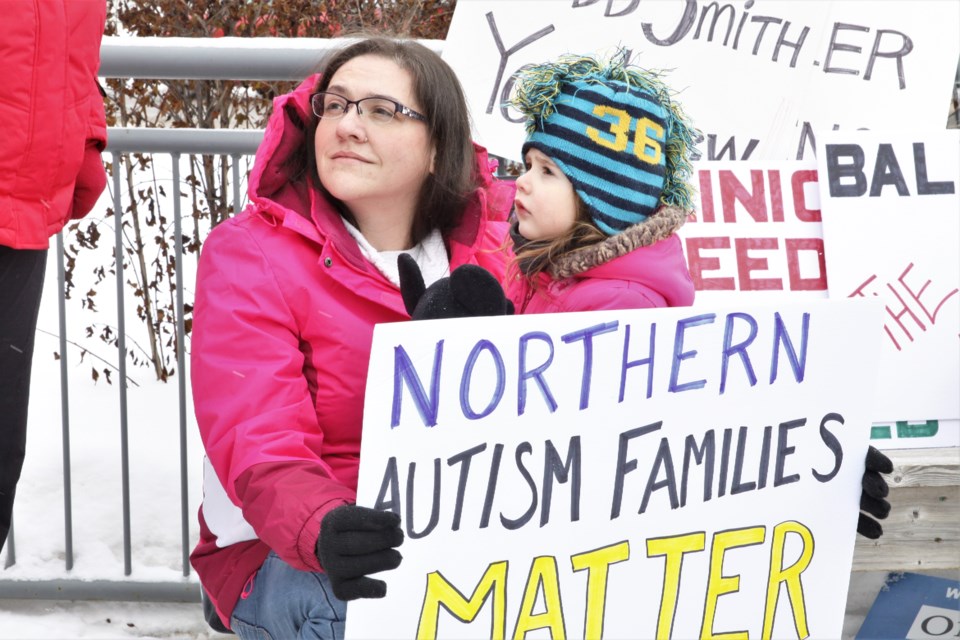THUNDER BAY – Two Thunder Bay autism advocates joined a rally at Queen’s Park Tuesday protesting the Ontario government’s handling of autism services. A small group of local families and supporters gathered at Thunder Bay city hall to show their support.
Krista Smith, co-founder of Northern Autism Families, and Sharon Bak of the Thunder Bay Family Network were expected to speak at the rally alongside a representative from Sudbury.
Advocates say the Ford government’s approach has left many families struggling with vastly insufficient financial support, and little access to services even when they can afford them.
The previous model under Kathleen Wynne provided services to families, but was plagued by long wait-lists for thousands of children. The Ford government originally sought to reform the system by scrapping direct service provision and instead providing families with annual budgets of $20,000 for children under six, and $5,000 for those six and up.
The overhaul resulted in drastic reductions in service capacity in northern Ontario. Child & Community Resources, the region’s largest service provider, announced in the fall of 2019 it had lost 90 positions due to the changes, and would no longer be able to provide services to many clients.
Groups like the Ontario Autism Coalition slammed that initial approach, saying it ignored varying individual levels of need and often fell far short of covering costs. Facing public backlash, the government backtracked, saying it would consult with a panel of experts to redesign the program. Its recent announcement that the new program won’t be implemented until April 2021 has infuriated autism families and advocates.
Thunder Bay’s Alina Cameron, whose five-year-old daughter is autistic, recently joined the coalition’s board of directors. At the Thunder Bay solidarity protest, she highlighted the importance of early intervention for young children diagnosed with autism, saying the delays are unacceptable.
“Every day matters for our children, developmentally, and every day we lose is going to set us back later in life,” she says. “Two years might not sound like a big deal to wait for the average Canadian family, but for an Autism family, it’s an eternity. Especially when you’re talking about younger children.”
Cameron says for families like hers whose children require intensive therapy, the interim payments don’t come close to covering costs.
“When you have children being quoted therapies that will cost in excess of $80,000 a year, and the government offers $20,000, it guts you,” she says. “You know your child could be advancing quicker, they could be learning so much and having a less stressful life, learning to take care of themselves – and the government shortchanges you on that. It just makes you think they don’t value your child as much as other children, that they’re not as important because they have a developmental delay.”
